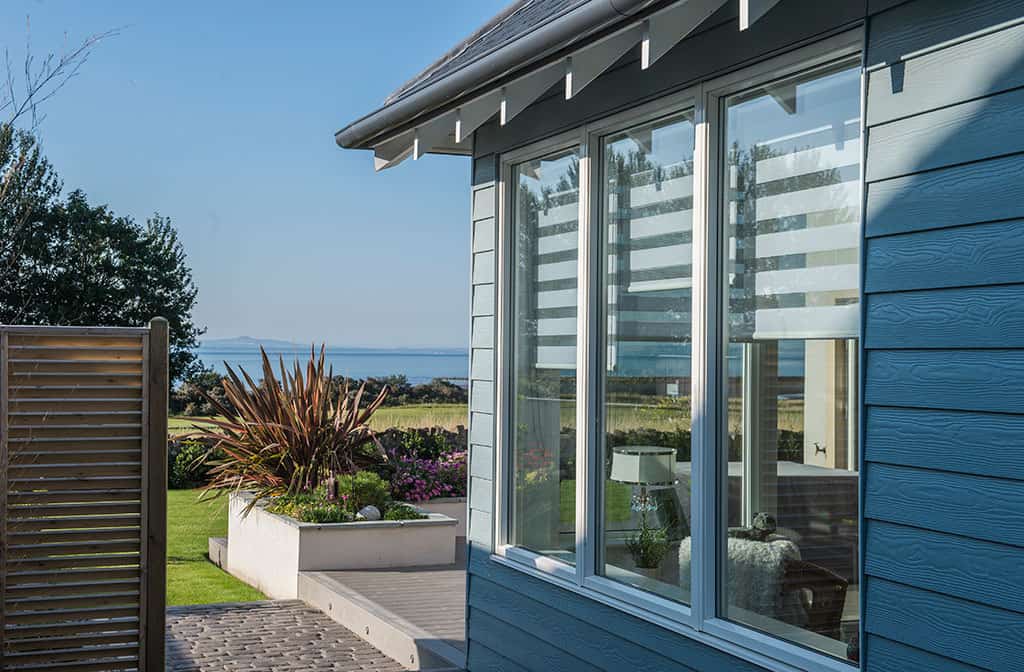Self-build zero vat – the ‘cherry on top’

The ‘cherry on top’ of a self-build project is the zero VAT rating. This allows you to get ‘more bang for your buck’ from building your own property, and comes at the perfect time – just when you’re moving into your new home!
Find out how your self-build project may qualify as zero VAT rated, and give you maximum benefit from your new home investment.
Here’s the deal: under certain circumstances, you don’t have to pay any VAT on a new-build project. At the current rate of 20%, this amounts to a significant saving in the cost of self-build.
Imagine: your brand new dream home is completed, you’re all set to move in, and what’s your house warming gift? A cashback of the VAT you previously paid towards the construction of your home! No wonder it’s often seen as the ‘cherry on top’ of self-build.
Here’s what you need to be aware of to ensure your project qualifies, as well as tips to help you get the most from your end-of-project return.
Zero VAT Rules
Firstly, the project must be classed as a new build. A new build means ‘built from scratch on virgin land, or land cleared completely to ground level of any pre-existing buildings.’
If this applies, then VAT will not be charged on labour and most materials, as long as the plan is for the new dwelling to be occupied right away, as your main place of residence.
If you don’t intend to live in the premises, or intend to use your home as a business, then it’s likely you’ll have to pay VAT.
You only get one chance to make a single claim, and you have three months to do it, so it’s important to do it right. Generally, your claim must be made as soon as possible after the completion certificate is received by building control.
Zero VAT Guidelines
All labour in qualifying projects is zero rated, so any invoices received for labour should not include VAT. VAT is charged on materials, however, and most of it can be claimed back at the end of the project.
VAT can be claimed back on most materials, but not all. Non-eligible materials include bedroom and bathroom furniture, appliances such as dishwashers, fridges and ovens, and other household items, such as curtains and blinds. Tool hire, professional fees and other services are also non-reclaimable.
Your claim at the end of the project must clearly illustrate what has been used, and this must tally with what has been built. This means recording materials is one of the most important processes in a self-build project.
All items over £100 must be formally identified within the claim, by presenting VAT receipts which clearly detail the supplier’s VAT number, name and address, the price, quantity and description of goods, and the name, address and site details of you and your project.
‘Completion’ is generally defined as the date of receipt of your completion certificate. When submitting your claim, you must provide a copy of this certificate, along with a copy of your construction drawings, planning permission, and VAT receipts for all purchases.
Tips
- You only have one opportunity to make one submission within a three-month window, so it’s vital to get it right. Understand the process before you start, and keep meticulous records throughout the self-build process, to ensure your reclaim application is successful.
- Familiarise yourself with the details before you start. The reclaim form for self-build projects is VAT Notice 431(NB) and can be downloaded from the HMRC website, or for more information, click here.
- Set up an effective filing system before your project starts, and commit to maintaining this throughout the build. Include all receipts, dates and other details, for easy recall. It’ll be worth it!
- Use the HMRC’s VAT helpline to make sure you’re on track: 0845 010 9000.
- Make sure you receive all receipts before you receive your completion certificate, or you won’t be able to include them in your claim.
- Contactour helpful staff for more information on reclaiming VAT on your self-build project.
Want to know more about the hidden benefits of self-build? Get in touch to discuss zero VAT and build costs with our team.
Article Archives
- 31 January Get Started with your Self-Build Design
- 11 October Making self-build more straightforward
- 13 March NSBRC Building Systems Workshop
- 03 March Self-Build Pre Planning Advice
- 07 December External Wall Build Ups Explained
- 19 October NaCSBA’s Custom and Self Build Conference
- 22 September Our Saltire Scholar 2022
- 21 September Planning permission explained
- 23 August Fundraising for Marie Curie
- 17 August Carbon Capture and Storage
- 15 March The Case for Project Management
- 03 February Financing your self-build with a mortgage
- 15 October Custom Build Collaboration for West Cumbria
- 17 March Tackling timber frame terminology
- 06 October Exhibitors and experts line up at the NSBRC
- 26 March Tips for working from home
- 16 November Top Tips When Planning Your Build
- 25 September Is timber frame the same as a pre-fab?
- 09 April Boost Your Self-Build Knowledge
- 08 February Can a timber frame home stand the test of time?
- 15 January Self-build mortgages: what you need to know
- 23 February Cut on-site costs with FIT pre-insulated panels
- 03 January Bespoke self-build checklist
- 07 November Custom build vs self-build
- 07 April The three timber frame build routes
- 10 August A Scottish model for an English market
- 18 September 3 essentials for self-build success